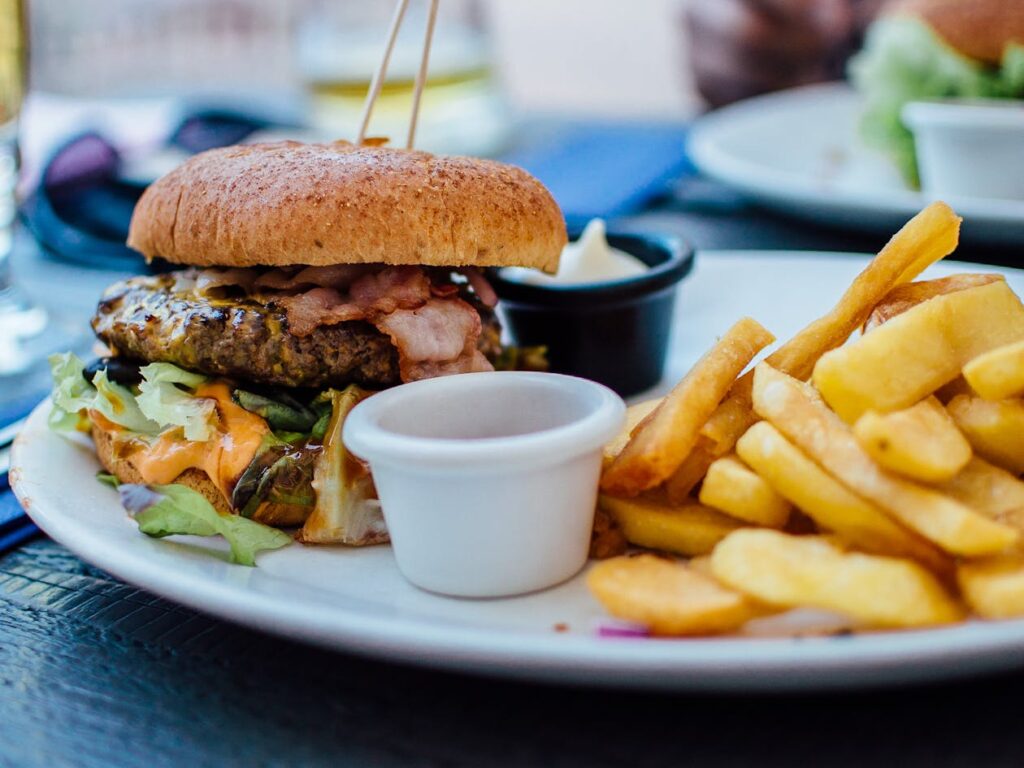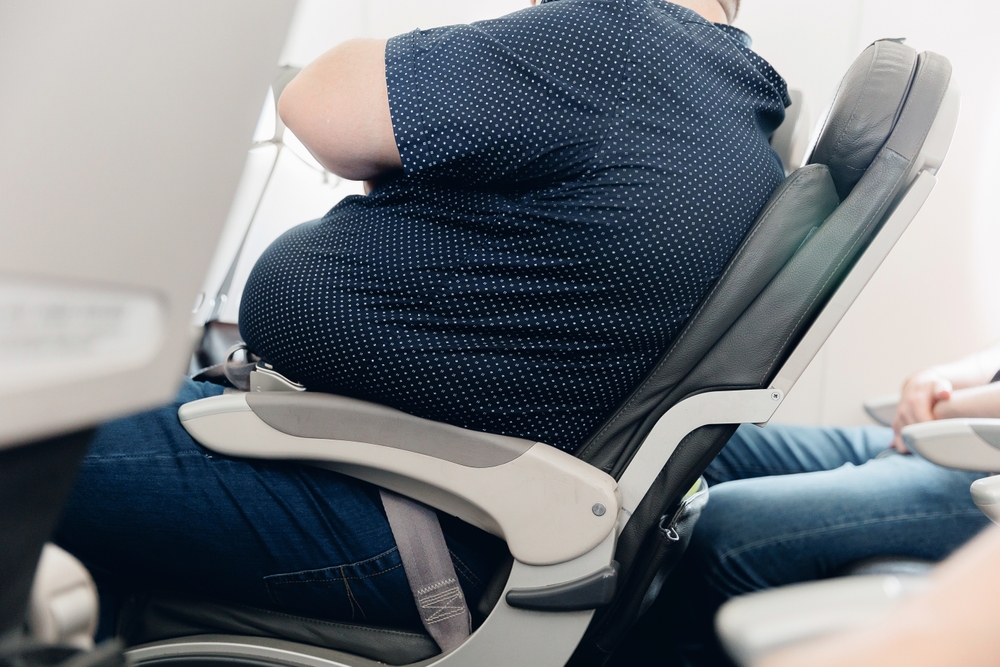Government Introduces New Law That Stops People Refilling Sugary Drinks at Restaurants

Walking up to soda fountains for second, third, and fourth refills just became illegal in England. A dining ritual millions of people take for granted will vanish from restaurants across the country. Parliament passed legislation that ends unlimited access to something most customers assumed was their right once they paid for their meal.
Fast food chains built entire business models around unlimited beverage offerings. Families planned restaurant visits knowing children could drink as much soda as they wanted. Value-conscious diners factored free refills into their dining decisions. All these calculations shift dramatically as government intervention reaches into cups, glasses, and beverage dispensers nationwide.
October 2025 marks the end of an era for English dining culture. What drove lawmakers to regulate something as simple as drink refills? Why did legislators decide this particular restriction would solve problems that education campaigns and personal responsibility could not?
England Ends Unlimited Soda Fountains Forever
Obesity robs our kids of the best possible start in life, sets them up for a lifetime of health problems, and costs the NHS billions.
— Wes Streeting (@wesstreeting) December 3, 2024
This Government is taking action now to end the targeting of junk food ads at kids, across both TV and online.https://t.co/w5gkQQ29lA
Free refills of sugar-sweetened beverages face elimination under new legislation targeting obesity rates that continue climbing despite decades of public health campaigns. Restaurants and cafes can no longer offer unlimited soft drink promotions once regulations take effect in October 2025.
Law applies specifically to businesses with 250 or more employees, exempting smaller independent restaurants and cafes from compliance requirements. Large chains, franchise operations, and national restaurant brands must redesign their beverage service models to eliminate free refill options for sugary drinks.
Legislation forms part of sweeping anti-obesity measures that include multiple restrictions on how food and beverage companies market and sell products. Government officials frame refill bans as necessary interventions to protect public health and reduce strain on healthcare systems overwhelmed by obesity-related conditions.
Health Secretary Wes Streeting defended the policy approach: “Obesity robs our kids of the best possible start in life, sets them up for a lifetime of health problems, and costs the NHS billions.”
Cola, Lemonade, and Sweet Tea All Hit by New Rules
Nutrient profiling model developed in 2004-2005 determines which beverages fall under refill restrictions. Scientific scoring system evaluates drinks based on sugar content, energy density, and nutritional value per 100 grams of product.
Full-sugar sodas including colas, lemonades, and fruit-flavored carbonated beverages face restrictions under the new framework. Sweetened iced teas, energy drinks with added sugars, and juice-based beverages containing sugar ingredients all fall within banned categories.
Sugar-sweetened coffee drinks like mochas, frappes, and flavored lattes also meet criteria for restricted refills. Milk-based beverages and milk alternatives with added sweeteners face identical limitations when served in restaurant settings.
Unsweetened drinks remain exempt from refill restrictions. Diet sodas, sugar-free beverages, plain water, unsweetened tea, and black coffee can still be offered as unlimited refills. Natural fruit juices without added sugars avoid restriction categories.
Childhood Obesity Crisis Drives Government Action

Statistical evidence paints concerning picture of rising obesity rates across England. One in four adults now lives with obesity according to NHS data. Among children aged 10 to 11, one in five meets clinical obesity criteria.
NHS expenditures on obesity-related conditions exceed £11 billion annually. Type 2 diabetes diagnoses increase year over year as weight-related health conditions affect younger populations. Heart disease risks, certain cancer types, and numerous other health complications correlate with obesity.
Reception-aged children show obesity rates of 9.2 percent, creating concerns about long-term health trajectories for youngest populations. By age five, one in five children experiences tooth decay linked directly to excess sugar consumption.
Government modeling suggests advertising restrictions and refill bans could prevent approximately 20,000 childhood obesity cases. Officials estimate 7.2 billion calories per year will be removed from children’s diets through combined policy measures.
Fast Food Giants Face Major Business Model Changes
Chain restaurants constructed profitable revenue streams around unlimited refill offerings. Beverage sales represent high-margin products where initial purchase prices cover refill costs many times over. Free refills encouraged customers to choose restaurants offering perceived value through unlimited drinks.
Businesses must now redesign drink pricing structures and portion strategies to comply with new restrictions. Single-serving beverages may cost more as restaurants adjust pricing to compensate for eliminated refill revenue. Customer expectations for value deals face fundamental challenges under new regulatory environment.
Franchise owners navigate compliance requirements across multiple locations while maintaining profit margins that depend partly on beverage sales. Point-of-sale systems require updates to prevent refill transactions for restricted drink categories.
Restaurant industry representatives express concerns about competitive disadvantages if customers choose water instead of purchasing additional sugary beverages. Compliance costs for menu updates, staff training, and system modifications add financial burdens during implementation periods.
Multi-Buy Deals and Junk Food Ads Also Get Axed

Buy-one-get-one-free promotions on unhealthy food products face simultaneous bans under related legislation. Supermarkets, high street shops, and online retailers can no longer offer multi-buy price promotions on foods classified as less healthy under nutrient profiling standards.
TV advertising restrictions for junk food before 9pm watershed begin in January, creating protected viewing periods when children watch television programming. Pre-watershed hours will no longer feature advertisements for products high in fat, sugar, or salt.
Online paid advertising for less healthy products faces comprehensive 24-hour restrictions across digital platforms. Social media marketing, search engine advertisements, and banner ads promoting restricted food categories must cease under new rules.
“This government is taking action now to end the targeting of junk food ads at kids, across both TV and online,” officials announced when revealing complete policy package.
Coordinated approach targets multiple aspects of food environment simultaneously rather than relying on single interventions. Policymakers argue comprehensive strategies produce better population health outcomes than isolated measures.
Science Behind Sugar-Sweetened Beverage Problems

Research demonstrates liquid calories bypass normal satiety signals that regulate food intake. Bodies process beverages differently than solid foods, failing to trigger fullness responses that prevent overconsumption.
Sugary drinks show stronger statistical correlations with weight gain than equivalent calories from solid food sources. People who consume sugar-sweetened beverages regularly gain more weight over time compared to those who avoid these drinks.
Dental health concerns compound obesity issues, particularly among children. Tooth decay affects one in five children by age five, with excess sugar consumption identified as primary cause. Acidic nature of many sweetened drinks erodes tooth enamel while sugar feeds bacteria that cause cavities.
Free refill policies encourage consumption beyond typical single-serving amounts. Unlimited access removes natural stopping points that portion control provides. People drink more when refills cost nothing compared to situations requiring additional purchases.
Personal Freedom vs Public Health Battleground
Critics question government authority to dictate beverage choices in private business establishments. Personal responsibility arguments suggest individuals should make their own decisions about food and drink consumption without regulatory interference.
Supporters counter that obesity externalities justify intervention when health costs burden entire society through increased NHS expenditures. Collective responsibility for healthcare funding creates justification for policies that reduce preventable diseases.
Debate mirrors earlier conversations about tobacco regulation, alcohol restrictions, and seatbelt laws. Individual liberty concerns clash with evidence that population-level interventions save lives and reduce healthcare costs more effectively than education alone.
Philosophical disagreements about government roles in protecting public health versus respecting personal autonomy underlie policy disputes. No clear consensus exists about where boundaries should fall between individual freedom and collective wellbeing.
Small Independent Restaurants Dodge New Rules

Only businesses employing 250 or more people must comply with refill restrictions. Local cafes, independent restaurants, and small family-owned establishments can continue offering free refills without legal consequences.
Size-based exemption creates uneven playing field across food service sector. National chains face requirements that neighborhood competitors avoid, potentially shifting customer preferences toward smaller businesses not bound by restrictions.
Questions about fairness arise when identical beverages receive different regulatory treatment based solely on business size. Large franchise locations must refuse refills while independent restaurants across the street can offer unlimited drinks.
Policy architects defend exemptions as necessary to prevent overwhelming regulatory burdens on small businesses lacking resources for compliance infrastructure. Practical considerations about enforcement capacity and proportional impact drove decision to target larger operations.
What Happens Next for England’s Food Environment
Ten-Year Health Plan promises additional prevention measures beyond current refill bans and advertising restrictions. Government officials monitor compliance rates and measure population health outcomes to assess policy effectiveness.
Results from initial implementation phases could justify expanding restrictions based on observed impacts. Success in reducing childhood obesity rates might encourage broader applications of similar policies to additional food categories.
“This is the first step to deliver a major shift in the focus of healthcare from sickness to prevention, and towards meeting our government’s ambition to give every child a healthy, happy start to life,” officials stated about ongoing policy development.
Tension between market freedom and health regulation remains unresolved as society grapples with obesity epidemic that conventional approaches failed to control. Balance between protecting individual choice and promoting population health continues challenging policymakers worldwide.
England’s experiment with beverage refill restrictions will provide data about whether environmental interventions succeed where education and voluntary measures did not. Future policy directions depend partly on evidence gathered from these controversial first steps into direct food environment regulation.
Loading...

